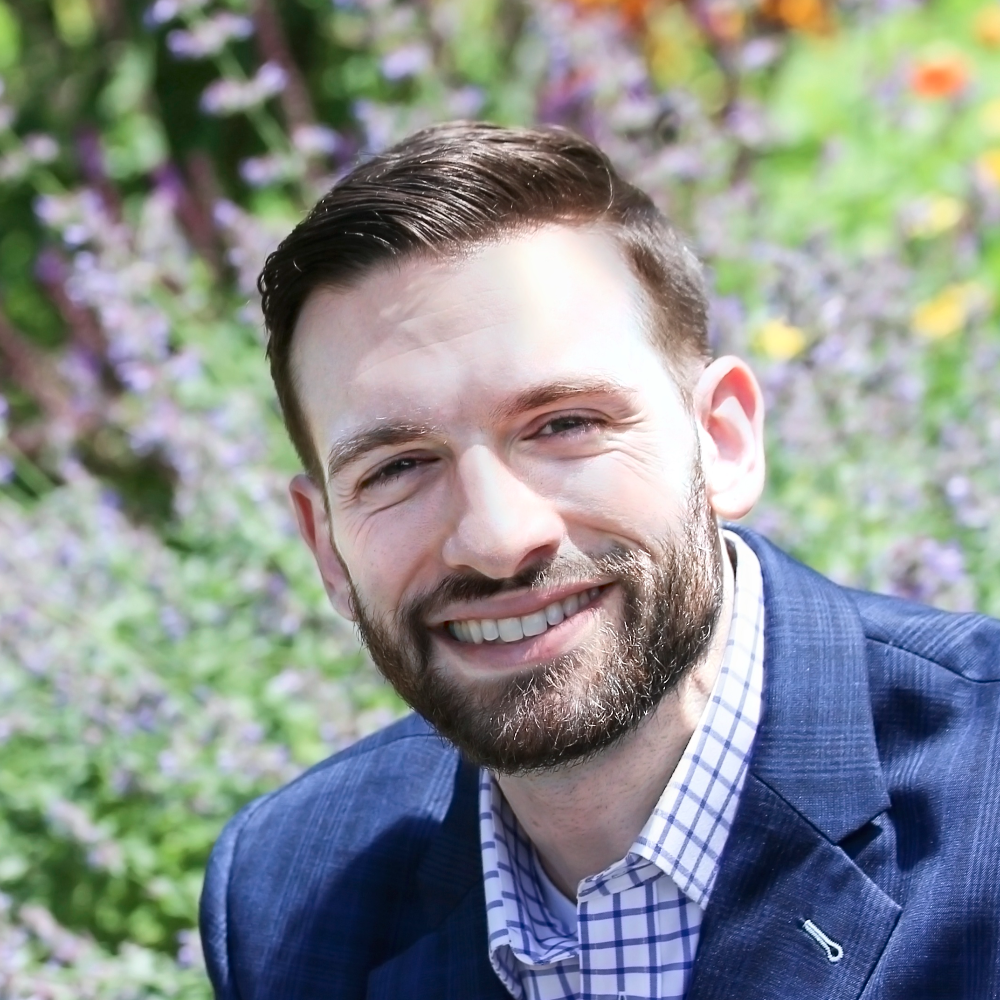Living Beyond Age 100: A Possibility With Financial Impact
Living longer raises important financial and lifestyle questions.


Profit and prosper with the best of Kiplinger's advice on investing, taxes, retirement, personal finance and much more. Delivered daily. Enter your email in the box and click Sign Me Up.
You are now subscribed
Your newsletter sign-up was successful
Want to add more newsletters?

Delivered daily
Kiplinger Today
Profit and prosper with the best of Kiplinger's advice on investing, taxes, retirement, personal finance and much more delivered daily. Smart money moves start here.

Sent five days a week
Kiplinger A Step Ahead
Get practical help to make better financial decisions in your everyday life, from spending to savings on top deals.

Delivered daily
Kiplinger Closing Bell
Get today's biggest financial and investing headlines delivered to your inbox every day the U.S. stock market is open.

Sent twice a week
Kiplinger Adviser Intel
Financial pros across the country share best practices and fresh tactics to preserve and grow your wealth.

Delivered weekly
Kiplinger Tax Tips
Trim your federal and state tax bills with practical tax-planning and tax-cutting strategies.

Sent twice a week
Kiplinger Retirement Tips
Your twice-a-week guide to planning and enjoying a financially secure and richly rewarding retirement

Sent bimonthly.
Kiplinger Adviser Angle
Insights for advisers, wealth managers and other financial professionals.

Sent twice a week
Kiplinger Investing Weekly
Your twice-a-week roundup of promising stocks, funds, companies and industries you should consider, ones you should avoid, and why.

Sent weekly for six weeks
Kiplinger Invest for Retirement
Your step-by-step six-part series on how to invest for retirement, from devising a successful strategy to exactly which investments to choose.
Living beyond age 100 might sound like the stuff of science fiction, but think about how many once-impossible ideas are now part of everyday life. Air travel, landing on the moon, mobile phones and even the ability to map our DNA were unthinkable not long ago. Now, breakthroughs in medicine and technology are nudging us closer to the possibility of living significantly longer, healthier lives. While immortality isn’t on the table just yet, the idea of living well beyond 100 years is no longer as far-fetched as it once seemed.
But let’s pause and think about what that means beyond the medical advancements. Living longer raises important financial and lifestyle questions.
- Could we face longer careers with multiple transitions?
- Should we be investing in ourselves — developing new skills and adapting to evolving industries — to ensure our earning potential keeps up with the times?
- How might we need to adjust our savings rates to support a longer life?
- And what happens to our investment strategies when retirement could stretch over decades instead of years? Will we outlive our money?
These are serious considerations to explore now, long before longevity becomes our new reality.
From just $107.88 $24.99 for Kiplinger Personal Finance
Become a smarter, better informed investor. Subscribe from just $107.88 $24.99, plus get up to 4 Special Issues

Sign up for Kiplinger’s Free Newsletters
Profit and prosper with the best of expert advice on investing, taxes, retirement, personal finance and more - straight to your e-mail.
Profit and prosper with the best of expert advice - straight to your e-mail.
Is aging the root cause of mortality?
What if aging itself is the underlying cause of most diseases? Researchers are increasingly focused on this idea.
At its core, aging is the slow accumulation of cellular damage — systems break down, waste builds up, and biological processes start to falter. This can pave the way for illnesses like heart disease, cancer and neurodegenerative disorders.
Interestingly, there has even been some discussion to consider aging a disease. This perspective is a striking shift that reframes aging as something that can be studied, slowed and potentially even reversed.
Two big theories on the human lifespan
When it comes to how long we might be able to live, two major theories are leading the conversation:
- Biological limits. Some scientists believe humans have a built-in lifespan limit, estimated at 120 to 150 years. Beyond this threshold, the argument goes, the body simply loses the ability to recover from damage and illness.
- Longevity Escape Velocity (LEV). This concept — regularly touted by longevity-focused influencers such as Bryan Johnson — suggests that advances in medical technology could allow life expectancy to increase faster than we age, potentially leading to indefinite lifespans. Some experts believe there’s a 50% chance LEV could become a reality within the next 15 years.
Regardless of which theory proves correct, according to the CDC, the average lifespan in the U.S. is currently 75.8 years for men and 81.1 years for women. (Because they tend to live longer, women face unique financial ramifications.) However, with ongoing advancements, the possibility of living to 100 and beyond is becoming more realistic for many.
Healthspan vs lifespan: Closing the gap
Living longer isn’t the ultimate goal for most of us; it’s living well. This is where the concept of healthspan comes in.
Healthspan refers to the years of life we spend in good health, free from chronic diseases or debilitating conditions. Currently, the gap between lifespan and healthspan is significant. In the U.S., while the average lifespan is 76.4 years, the average healthspan is only 63.9 years. That’s nearly two decades spent managing illness or declining health.
Fortunately, emerging technologies and proactive health care approaches aim to narrow this gap. For example:
- Genome editing: Tools like CRISPR can repair damaged DNA, potentially reversing some aspects of aging.
- Cancer detection: Liquid biopsies enable earlier detection of cancers, improving treatment outcomes.
- Cellular reprogramming: Nobel Prize-winning research has shown it’s possible to revert mature cells to a younger state, offering hope for regenerative medicine.
These breakthroughs, paired with lifestyle improvements, hold promise for extending both lifespan and healthspan.
The lifestyle factor: Your choices matter
While genetics influence longevity, your daily habits play an even bigger role. Studies suggest that genetics account for only 25% of lifespan, while lifestyle factors — like diet, exercise, sleep and stress management — make up the remaining 75%.
The saying “Genetics load the gun, but lifestyle pulls the trigger” captures this dynamic perfectly. By making deliberate choices to prioritize your health, you can reduce the risk of chronic diseases and significantly improve your chances of living a longer, more vibrant life.
Planning for a longer, healthier life
If living to 100 or beyond is a real possibility, it’s worth considering how this might reshape your life decisions today, including your work and financial decisions. Here are a few key questions to consider:
- Are you investing enough in your physical, mental and emotional well-being?
- Is your career set up to provide fulfillment over a potentially longer working life?
- Are you saving enough to support a retirement that could last decades?
- Should you adjust your investment strategy to account for the financial implications of a longer lifespan?
Answering these questions can help you take proactive steps to build a fulfilling and sustainable future, no matter how long you live.
Small changes, big results
Success in any area — health, finances, relationships — is often the result of consistent, small steps compounded over time. Just as steady saving builds financial security, small daily habits can lead to big health benefits. Starting early and staying consistent can make all the difference.
Final thoughts
We’re living in a time of incredible potential. Advances in medicine and technology are redefining what’s possible for human health and longevity. While living to 100 or beyond may not yet be the norm, the future holds exciting possibilities.
So, how might the idea of living a longer life influence your financial planning and otherwise change the way you approach your choices today?
- Would you focus more on health?
- Strengthen key relationships?
- Save more aggressively?
- Rethink your career path?
These questions are worth exploring as we prepare for a future full of opportunity — and perhaps a few surprises.
Related Content
- Make Longevity Risk Part of Your Retirement Plan
- Longevity Illustrator: Find Out How Long You Might Live
- Longevity: The Retirement Problem No One Is Discussing
- How to Manage Longevity Risk in Retirement
The information provided here is not intended as medical advice, diagnosis or treatment, nor is it investment, tax or financial advice. You should consult with a qualified professional for advice concerning your specific situation.
Profit and prosper with the best of Kiplinger's advice on investing, taxes, retirement, personal finance and much more. Delivered daily. Enter your email in the box and click Sign Me Up.

Dennis McNamara is a tax-focused, fee-only financial planner + co-founder of wHealth Advisors. You can find him at whealthfa.com.
-
 Dow Leads in Mixed Session on Amgen Earnings: Stock Market Today
Dow Leads in Mixed Session on Amgen Earnings: Stock Market TodayThe rest of Wall Street struggled as Advanced Micro Devices earnings caused a chip-stock sell-off.
-
 How to Watch the 2026 Winter Olympics Without Overpaying
How to Watch the 2026 Winter Olympics Without OverpayingHere’s how to stream the 2026 Winter Olympics live, including low-cost viewing options, Peacock access and ways to catch your favorite athletes and events from anywhere.
-
 Here’s How to Stream the Super Bowl for Less
Here’s How to Stream the Super Bowl for LessWe'll show you the least expensive ways to stream football's biggest event.